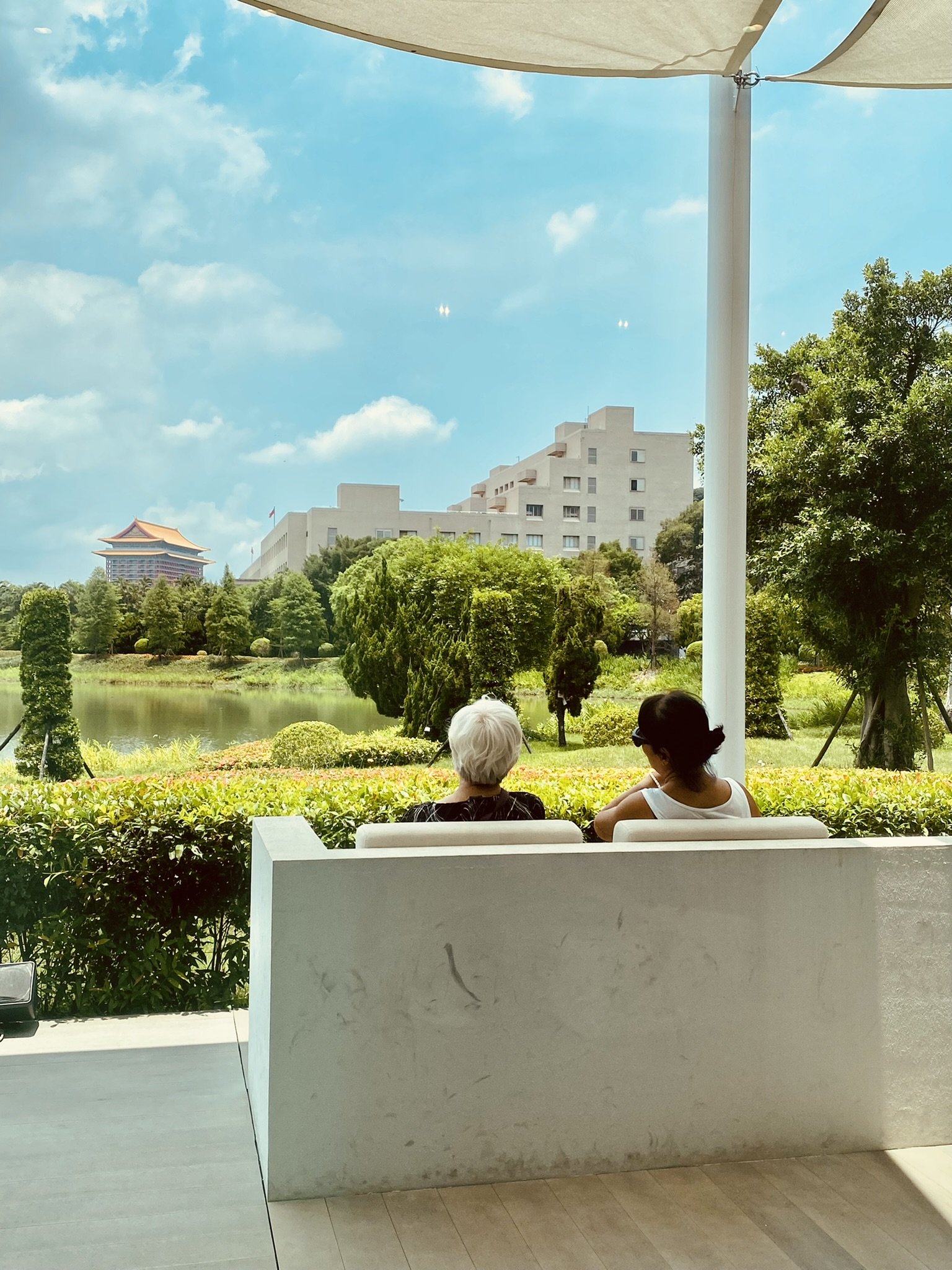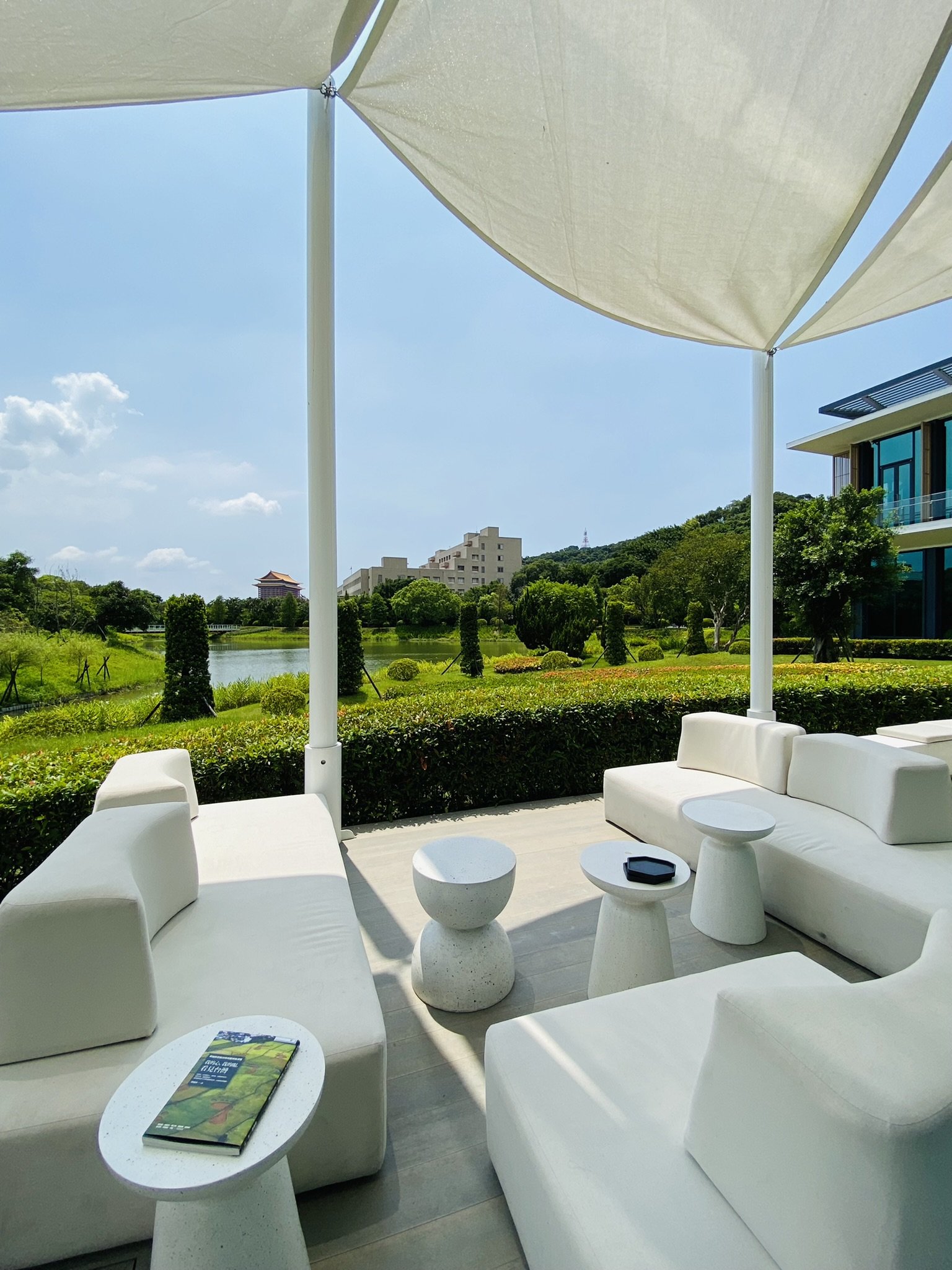Hunter House, Vienna Virginia. Photo credit: Emily Ott
Our feelings are deceiving. That not only happens to our mental state but also how we actually "feel" physically. Before deciding how to make the venue beautiful, we could discuss "apparent temperature."
"Apparent Temperature"
Apparent temperature is the temperature equivalent perceived by a human. It is caused by air temperature, relative humidity, and wind speed. In the summer of the northern hemisphere, peak sun angles occur at the solstice on June 21, but peak temperature and humidity are more likely to occur in August. (In a place like Washington, DC, the hottest month likely occur in July.) And When the humidity is high, we often use this heat index to describe how we might feel.
As you can see from this heat index chart, the higher the environmental moisture, the hotter we humans feel. (For example, if the air temperature is 90 °F and the relative humidity level is 60%, it would feel like 100 °F to us!)
P.S. You can also use this link to NOAA's heat index calculator to see how warm it might feel.
How to create a chill spot?
It is crucial to have a well-ventilated space in order to reduce the humidity level in the area. With the help of shadow and shading, we can quickly create our chill venue.
Here is how to create an ideal spot:
1. Orientation - establish north-facing settings to avoid sun exposure. If your outdoor seating area is adjacent to a structure, place it on the east side of it. In the northern hemisphere, a 35-foot-high mass (a barn house, for example) could create approximately 8 to 30 feet of shadow from 12 p.m. to 3 p.m. (See more detailed shadow study below.)
The structure on the left is a typical barn house (35-foot height) and on the right is a typical suburb office (35-foot height). As you can tell from this diagram, locating seating area at north of the structure during noon, guests could take advantage of 8 to 15 feet of shadow. Locating seating area at east side of structure during afternoon, guests could take advantage of 30 to 40 feet of shadow. This simulation model is located in latitude of 39N and longitude of 77W at the beginning of the August.
2. Shading elements: there are a few primary shading choices - deciduous trees, tents, and shading structures such as cabanas, gazebos, or loggia.
The deciduous trees have broader and thinner leaves to cover the sunlight but also let it penetrate through the veins. Planting deciduous trees on the southern side of buildings helps block the sun during summer and allows sunshine to penetrate indoors during the cold winter.
When choosing an outdoor tent, ensure to have an inner liner. This inner curtain not only functions as a decorative piece (to hide the tent frames) but also operates as a thermal break. You can quickly tell the temperature difference, especially using an inflated tent cover.
It is recommended to choose a light-colored fabric for the event tent. Lighter colors reflect more solar rays and emit more heat than dark colors.
If you have an outdoor structure, select a "cool roof." Two attributes of roofs affect the temperature we feel inside: the roof slope and the roofing material.
Roof slope: Low-sloped roofs are defined as no more than 2 inches rising over 12 inches; they primarily use a coating or single-ply membrane to reduce the heat influence. Steep-sloped roofs often use metal roofing, tiles, and shakes to minimize heat transfer.
Roofing material: Choosing a higher SRI (Solar Reflectance Index) for your roof material is recommended.
Chi Hai Park, Taipei, Taiwan
Wait, How To Make It Beautiful?
Here are three simple tips to help you beautify the outdoor seating.
1. Consider draping: as mentioned above, adding inner tent linen can give a decorative effect. It is the same as adding draping— the depth of layers created by the draping will generate a perfect ambiance for a glamorous dining experience.
2. Draw the eye up: people often focus on the table's centerpiece and forget it is also compelling to have an eye-catching installation hanging above. An artistic installation can draw your guests' eyes upward, adding visual interest to the entire experience. Elevated decorative pieces (fans, balloons, floral designs, etc.) can also free up space on the table and eliminate clutter.
3. Amplify your color scheme: choose a theme color to match your dining experience. Ensure that you select a harmonious color palette for your seating arrangement. Picking only one or two colors will enhance the fun spirit but not overcrowd it. There is also a psychological effect on various colors. Color can make us feel happy or sad, exhausted or relaxed. Working with natural tones and getting inspired by the nearby landscape will help you provide a calm and relaxing dining experience.
By the way:
What to get more detail on your local weather? check out National Weather Service.
A "Cool Color Project" could help you select materials that reduce heat-gain. They also researches and develops "cool roof" products. If you are interested in learning more, please check out here.
If you like to make “chill“ spots, you might also like “What’s Cool about This Roof“. In this article, you will understand more about the theory behind a Cool Roof and how SR/SRI could help us select suitable materials.
Are you interested in learning more about how colors impact our mental state? This article from Psychology Today could help you to pick the right color that meets your desired experience.
The Solar Reflectance Index is an indicator of ability of a roof surface to return solar energy to the atmosphere. SRI is calculated with a complex formula spelled out in ASTM E 1980 and is a scale of 0 to 100 that measures a roof's thermal properties. While value 0 represents a standard black, and value 100 represents a standard white. Do not confuse it with Solar Reflectance (SR), which is not an index and is presented on a 0-1 scale. To understand more, please refer to “What is the Solar Reflectance Index” by Cool Roof Rating Council.





